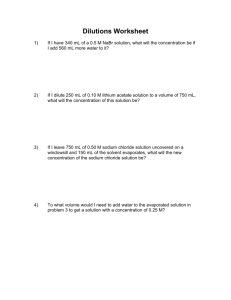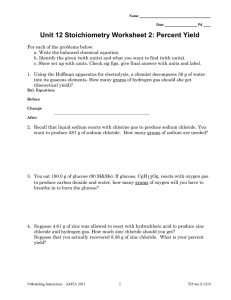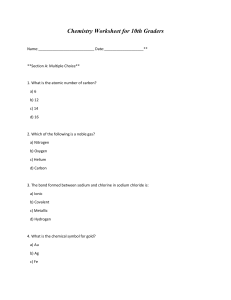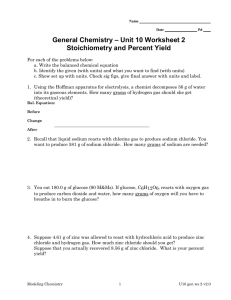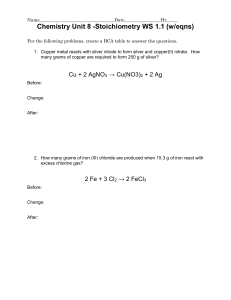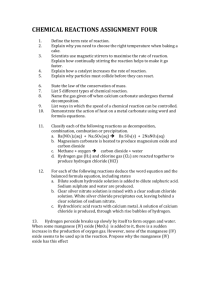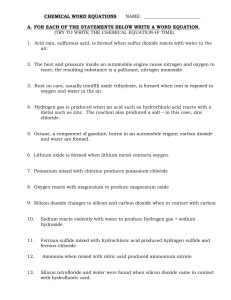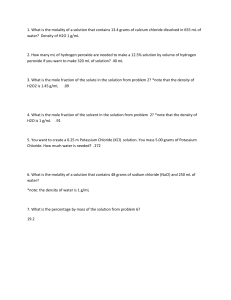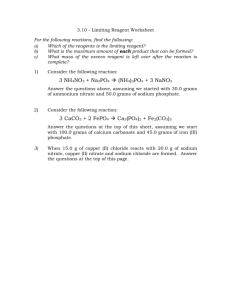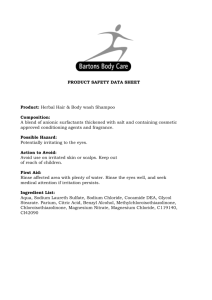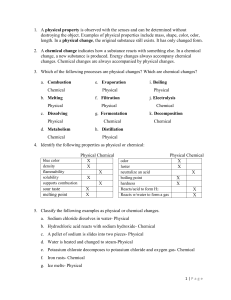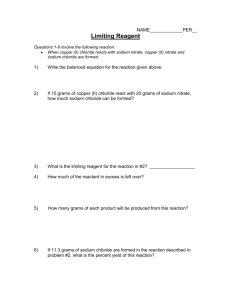Stoichiometry Worksheet: Mole Conversions & BCA Tables
advertisement
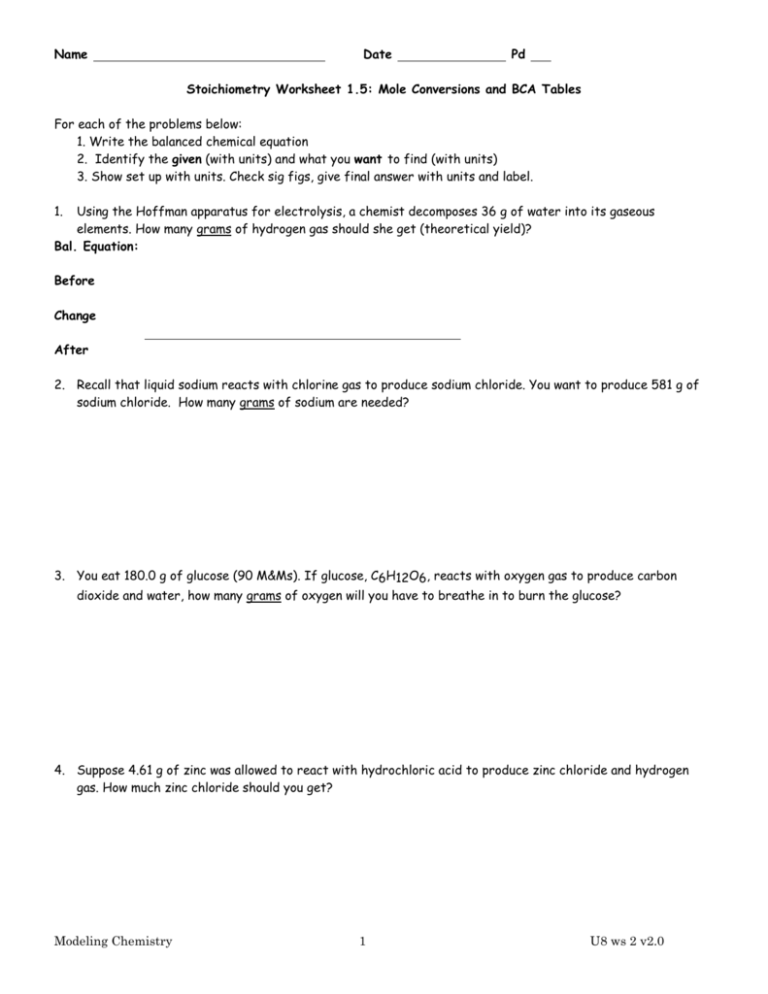
Name Date Pd Stoichiometry Worksheet 1.5: Mole Conversions and BCA Tables For each of the problems below: 1. Write the balanced chemical equation 2. Identify the given (with units) and what you want to find (with units) 3. Show set up with units. Check sig figs, give final answer with units and label. 1. Using the Hoffman apparatus for electrolysis, a chemist decomposes 36 g of water into its gaseous elements. How many grams of hydrogen gas should she get (theoretical yield)? Bal. Equation: Before Change After 2. Recall that liquid sodium reacts with chlorine gas to produce sodium chloride. You want to produce 581 g of sodium chloride. How many grams of sodium are needed? 3. You eat 180.0 g of glucose (90 M&Ms). If glucose, C6H12O6, reacts with oxygen gas to produce carbon dioxide and water, how many grams of oxygen will you have to breathe in to burn the glucose? 4. Suppose 4.61 g of zinc was allowed to react with hydrochloric acid to produce zinc chloride and hydrogen gas. How much zinc chloride should you get? Modeling Chemistry 1 U8 ws 2 v2.0 5. Determine the mass of carbon dioxide that should be produced in the reaction between 3.74 g of carbon and excess O2. 6. In the reaction between excess K(s) and 4.28 g of O2(g), potassium oxide is formed . What mass would you expect to form (theoretical yield)? 7. Determine the mass of carbon dioxide one could expect to form for the reaction between excess CH 4 and 11.6 g of O2. 8. Determine the mass of water vapor you would expect to form in the reaction between 15.8 g of NH 3 and excess oxygen to produce water and nitric oxide (NO). Answers: (1) 4.0 g H2 (2) 228 g Na (3) 192 g O2 (4) 9.61 g Zn (5) 13.73 g CO2 (6) 25.3 g K2O (7) 7.99 CO2 (8) 25.1 g H2O Modeling Chemistry 2 U8 ws 2 v2.0
